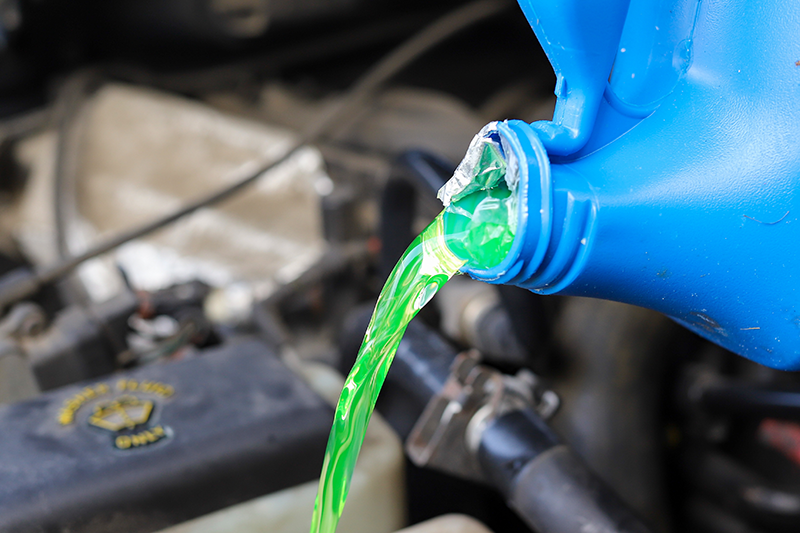Antifreeze plays a crucial role in protecting engines and systems against extreme temperatures. This doesn’t work. This essential substance does much more than just prevent the cooling water in the engine from freezing. It also contributes to optimal engine performance and durability all year round.
Types of Antifreeze
- Ethylene glycol -based: The most common form of antifreeze, prized for its excellent thermal properties but notorious for its toxicity.
- Propylene glycol -based: A safer alternative, often used in situations where contact with food or drinking water is possible.
- Methanol and Isopropanol : These are sometimes added to antifreeze solutions to improve performance at extremely low temperatures. Although they each pose their own safety risks.
Applications and Importance
Antifreeze is indispensable in the automotive industry, where it performs a dual function by protecting engines against both freezing and overheating. The unique composition of antifreeze helps transfer heat from the engine to the radiator, and vice versa. This keeps the engine at an efficient temperature. Outside the automotive industry, the fluid finds its way into HVAC systems and aviation. Where it helps to keep critical systems operational in cold conditions.
Misconceptions surrounding Antifreeze
A common misunderstanding is that antifreeze is only useful during the winter months. However, this is not the case. The fluid plays a vital role in a vehicle’s cooling system, regardless of the outside temperature. In particular by regulating the engine heat. Another incorrect assumption is that all antifreeze products are interchangeable. The reality is that different engines and systems have specific requirements for antifreeze, depending on their design and material use. Finally, there is the idea that antifreeze does not need to be replaced. In reality, this fluid loses its effectiveness over time and must be monitored regularly. If necessary, it should be replaced to ensure optimal performance.
Conclusion
Antifreeze is more than just a winter protection product. It is an essential fluid that contributes to the reliability and service life of engines and systems in various industries. By understanding the different types and their applications, users can make an informed choice that maximizes the performance and safety of their equipment. Understanding the misconceptions surrounding antifreeze and adopting safe usage practices ensures effective and environmentally conscious handling of this critical substance.
Additional resources
For those who want to delve deeper into the subject of antifreeze, there are plenty of reliable resources available. These provide extensive information about the composition, use and safety aspects of the product. Consider, for example, manufacturers, automotive associations, technical magazines and online forums such as motor-forum .






